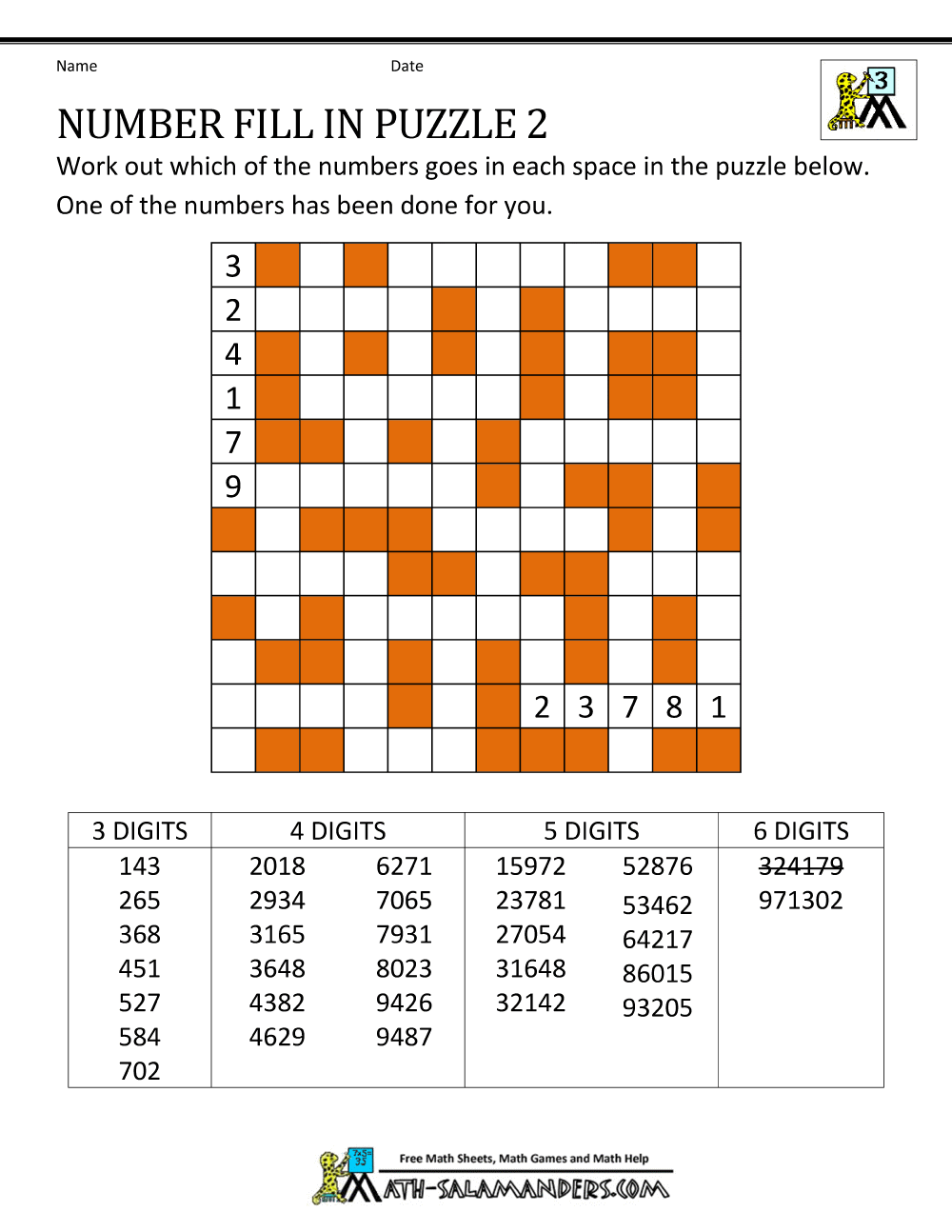
Like in the picture below, you’ll get the return values immediately.Ĩ. Let’s click the icon twice and you’ll see the instant output. In the picture below, you’re seeing the Fill Handle icon in the right-bottom corner of Cell D5. In this process, the entire column will be updated automatically and you won’t have to drag down the icon anymore to autofill. There’s another way of using the Fill Handle option and that is double-clicking the icon. Double-Click Fill Handle to AutoFill Numbers Fill Down to Last Row with Data in Excel (3 Quick Methods)ħ.
NUMBER FILL IN BLANK HOW TO
NUMBER FILL IN BLANK SERIES
What we have to do is select two successive cells starting from the first input data as shown in the following screenshot.Īfter auto-filling the column with the Fill Handle, you’ll find the series of numbers starting with ‘1’ while skipping a row at regular intervals.Ħ. Let’s assume, we want to fill a series of numbers in a column where each number will skip a row to surpass the preceding number. We can use the Fill Handle option to autofill a column while skipping rows at a regular interval. AutoFill Numbers While Skipping Rows (Blank Cells) You’ll find the series of numbers with the mentioned criteria right away.ĥ. ➤ Input ‘2’ and ‘20’ in the Step value and the Stop value respectively.

➤ Select the Columns radio button from the Series in options. Let’s assume we want to create a series of numbers with a common difference of ‘2’ and the series will end with the last value of not more than 20. ➤ Select the Series command from the Fill drop-down under the Editing group of commands.Ī dialogue box named ‘Series’ will open up. ➤ From the Home ribbon, go to the Editing group of commands. Let’s go through the following steps to see how it works. We can use the Fill Series option more precisely by activating the dialogue box from the Series command. AutoFill Numbers by Using Fill Series Command in Excel Read more: How to Use Autofill Formula in ExcelĤ. You don’t have to choose the Fill Series option here anymore as shown in the first method. Now use Fill Handle to autofill the column and you’ll get the series of numbers at once.

You must keep in mind that while using this formula in a cell, you have to keep the immediate upper cell blank. If I want to start the number with ‘1’, then I have to input the following formula in Cell B5:Īfter pressing Enter, you’ll find the number ‘1’. Now we can use the Fill Handle option to autofill the column up to a specific cell. So if you apply the ROW function in that cell, the function will return ‘5’.

In the following picture, Cell B5 is situated in Row 5. By inserting this ROW function in a cell and dragging it downward, we can find a series of numbers in a column. The ROW function returns the row number of a cell reference. AutoFill Numbers by Using ROW Function in Excel

Read more: How to Autocomplete Cells or Columns From List in ExcelĢ. ➤ Click on the options menu as shown in the following picture and select the Fill Series command.Īnd you’ll be shown the series of numbers starting from 1 to 9.
NUMBER FILL IN BLANK PLUS
➤ Drag the Plus (+) icon downward as long as you want. ➤ Put your mouse cursor onto the right-bottom corner of the selected cell, you’ll find a Plus (+) icon there. Now, we’ll use the Fill Handle option to autofill the series of numbers starting from 1. In the picture below, a number ‘1’ has been inputted in Cell C5. In our first example, we’ll see the basic use of Fill Handle to autofill a series of numbers. AutoFill a Column with a Series of Numbers 12 Suitable Approaches to AutoFill Numbers in Excel 1.


 0 kommentar(er)
0 kommentar(er)
